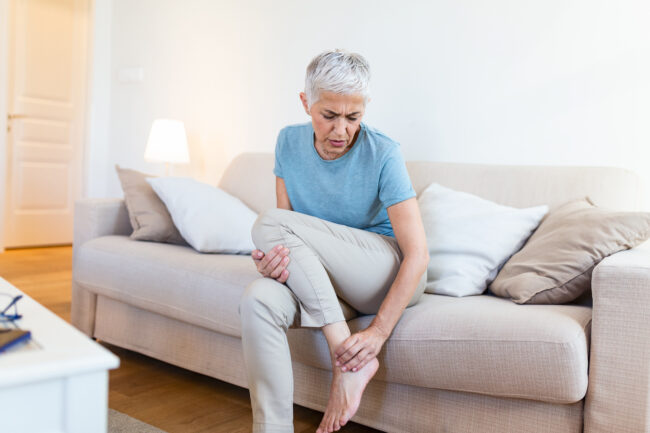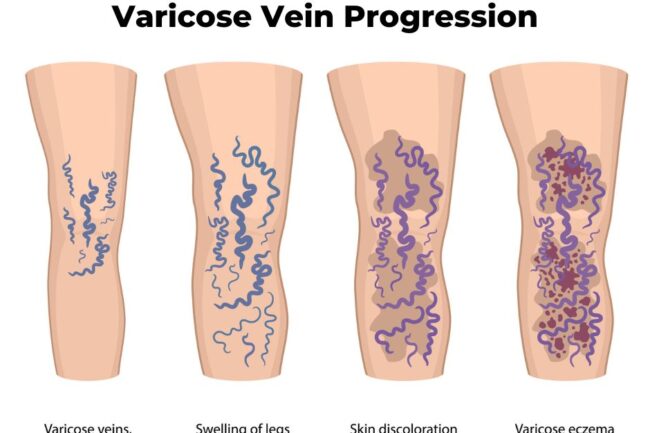While varicose vein treatment is easier than ever before, it doesn’t mean it’s for you right now. In some cases, the symptoms associated with varicose veins can be managed through several changes to lifestyle and diet. However, other veins will require medical attention. Learn the difference between the two and whether it is worth having varicose veins treated.
When do my vein conditions not need treatment?
Varicose veins don’t always cause symptoms. If your veins aren’t bothering you all that much, you can get away with making a few lifestyle changes to slow the condition’s progression into aches, swelling, and itching. Wearing compression stockings, getting enough exercise, managing your weight and diet, and elevating your legs for a few minutes a day can help keep your varicose veins in check.
When do my varicose veins need treatment?
If you are feeling varicose vein symptoms, you should seek treatment. Or, at the very least, specialist advice. Aches, fatigue, swelling, and burning sensations can start negatively impacting your life and preventing you from doing certain activities. While compression, elevation, and gentle exercise can help manage the worst of it, medical intervention is currently the only way to fight symptoms in the long run.

Older woman sitting on her couch and rubbing her leg in pain
Signs you should get your varicose veins treated
It is important to note that varicose veins can worsen over time. While each person will have their own experience of symptoms, each one can be cause for concern or nothing to worry about. Here are some of the main symptoms that occur with varicose veins, and how to tell if you should see someone about them.
Swelling
- Usually fine: Occasional swelling that occurs at the end of the day, mild and painless, clearing up after you lay down.
- Speak to your doctor: If the swelling is happening most days, covering more than just the ankles or causing pain.
Pain
- Usually fine: Occasional twinges of discomfort or mild warm sensations.
- Speak to your doctor: Cramping or burning sensations in the legs, pain that occurs regularly or bouts of severe pain.
Appearance
- Usually fine: Small spider veins or mild bulges smaller than a thumbnail.
- Speak to your doctor: Discoloration of the skin, thick bulging veins, twisted vessels that wobble with each step.

An illustration showing the potential progression of varicose veins and their symptoms, if they’re left untreated.
While these tips are general guidelines, it’s important to remember that each patient will have a different experience, and what might be a warning sign for one person could be normal for another. If you’re ever unsure what to make of it, speak to your GP or a vein doctor.
Benefits of treating varicose veins
Self-confidence
For many varicose vein sufferers, improving the appearance through laser treatment can have an immediate positive impact on self-confidence.
Many people feel embarrassed by how the veins on their legs look and will dress in clothes that hide or cover them.
A great night’s sleep
Sleep can be a very painful time for many varicose vein sufferers. Leg aches and pains often get worse during the night when your body is relaxed. Removing the source of aches and pains can help your body get a restful night’s sleep.
Start Moving Again!
Another great example of how treating your varicose veins can have a positive impact on your life is the motivation, and the ability, to start exercising again. Many patients advise that exercise becomes almost impossible due to the pain associated with varicose veins. Luckily, after a minimally invasive treatment, you can commence a more active lifestyle almost immediately.
Can varicose veins be a sign of something worse?
It’s also important to note that varicose veins may result in more dangerous conditions down the line. Among these are:
- Venous eczema. This condition causes the skin around the affected area to become dry, discoloured, and tough. Eczema can be dangerous; bacteria can break through the damaged skin, leading to infections.
- Venous ulcers, where a chronic sore forms on the skin. These sores increase the risk of infection and are very difficult to treat once they appear.
- Oedema. Here, fluid builds in the soft tissue, causing swelling. While swelling is common with varicose veins, oedema is a much more advanced stage. It will last longer throughout the day and cover a larger area.
- Deep Vein Thrombosis (DVT). Here, a blood clot forms in the vein, further disrupting your circulation. DVT can also lead to pulmonary embolism, which happens when the clot dislodges and travels to the lungs
If you have a blood disorder, you’ll be more at risk. So, we strongly recommend seeking treatment for your varicose veins ASAP.
Treatment options for varicose veins
Now, varicose vein treatment is expensive, and the prospect of surgery puts a lot of people off. But we want to reiterate that treatment can bring you significant relief. Not to mention, modern treatment methods are minimally invasive, quick, and highly effective.
Endovenous Laser Ablation and Radiofrequency Ablation, for example, only require a small incision and local anaesthesia. They are also almost 100% effective and carry a less than 1% risk of complications.
So, is it worth treating varicose veins?
If your varicose veins aren’t bothering you, you can generally get away with at-home symptom management. But If you have a blood disorder, your varicose veins are causing you aesthetic or physical discomfort, or you feel that your symptoms are worsening, then yes, varicose vein treatment is worth it. And the effectiveness of modern treatment methods makes it even more so.
If you decide to get treatment, give us a call at 0420 102 637.
